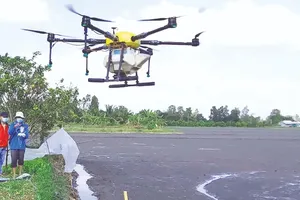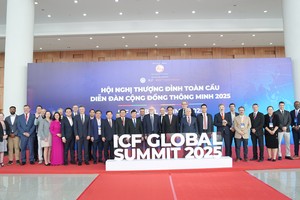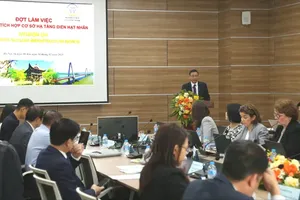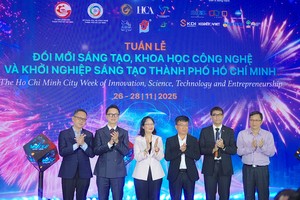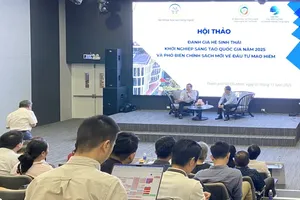The focus now must be on transitioning from experimentation to value creation.
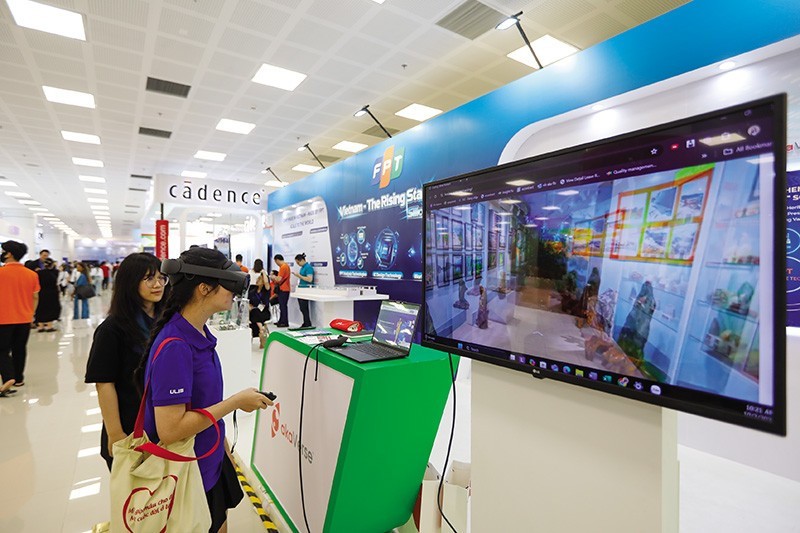
As artificial intelligence (AI) is rapidly emerging as a key driver of the digital economy, to move beyond experimentation and deliver real value, experts held that Vietnam must establish a domestic AI market where businesses can develop, commercialise, and compete fairly.
Unlocking commercial value
At the Vietnam AI Forum (AI360) 2025, experts described Vietnam as one of the region’s fastest-growing AI markets, projected to reach US$1.52 billion by 2030, with annual growth of 20 percent.
In just one year, the share of AI-implementing businesses rose from 13 percent to 18 percent—nearly 170,000 companies. In 2024, five new enterprises adopted AI every hour, driving a 39 percent year-on-year increase in market growth—signalling a robust wave of investment into AI as a new engine for economic expansion.
The Vietnam AI Annual Report 2025 by the Information Technology Institute under the Vietnam National University, Hanoi, based on surveys of nearly 500 businesses and organisations, highlights AI’s potential to accelerate digital economic growth. Leading AI-supplying sectors include IT (31 percent), finance and banking (22 percent), education (17 percent), and health care and e-commerce (15 percent). Demand has been surging, particularly in education (23 percent), finance (26 percent), manufacturing (21 percent), transport (15 percent), and health care (16 percent).
CEO of FPT Nguyen Van Khoa noted that while 2023 was the “Year of Proof of Concepts”, 2025 marks the shift to “The Year of Business Value”. Generative AI and autonomous AI agents are completely transforming how businesses operate. AI is becoming as foundational as electricity or the Internet. For Vietnam, this is not only a trend but a golden opportunity to accelerate development.
Vietnam is among leading Southeast Asian countries in AI adoption, but to convert potential into measurable returns, it must close the gap between cutting-edge technology innovation and large-scale application with clear return on investment, he said, adding that the focus now must be on transitioning from experimentation to value creation.
AI-related investment is accelerating. Funding for dometic AI firms rose from $10 million in 2023 to $80 million in 2024 – an eightfold increase. The Ministry of Science and Technology is revising the National AI Strategy to 2030 and preparing a draft AI law to ensure safe, transparent, and responsible AI development.
To foster AI growth, the Government will increase public spending while the National Technology Innovation Fund (NATIF) allocates substantial support for AI adoption. A new procurement framework will prioritise domestic digital solutions.
It is necessary to turn the domestic market into a launch pad for AI businesses of Vietnam to stretch their reach to the region and the world, stressed Director of the ministry's Department of Information Technology Industry Nguyen Khac Lich.
In countries such as the Republic of Korea, Singapore, and the UAE, governments catalyse R&D and market creation by commissioning AI solutions.
Huynh Quang Liem, CEO of Vietnam Posts and Telecommunications Group (VNPT), proposed the Government allow enterprises to engage in major AI-driven projects such as operating national GPU infrastructure, developing Vietnamese large language models (LLMs), and building AI platforms supporting public administration.
Forbes forecasts the global AI services market will reach $243 billion in 2025, and $826.7 billion by 2030, growing 28 percent annually.
Vietnam's national GPU infrastructure – built through a state-invested and enterprise-operated model – will provide the computational capacity needed for AI development, a model already in use by advanced economies. A Vietnamese LLM would serve as a core foundation for competitive AI applications tailored to local language and culture.
Meanwhile, VNPT has successfully piloted an AI-powered administrative support system in Ho Chi Minh City’s Digital Transformation Center, which is now being scaled nationwide.
Turning strategy into action
Nguyen Trung Chinh, Chairman of CMC Corporation, called for clear policies, contracts, and mechanisms to enable businesses to mobilise resources and make plans effectively. He also recommended expanding R&D commissioning to stimulate open innovation ecosystems and investment in core technologies.
Kubo Yoshitomo, Deputy Chief Representative of JICA Vietnam, endorsed Vietnam’s strategy to enter the global digital economy through AI. However, he stressed the need for more practical support, including financing for startups and young AI research teams, technology infrastructure investment, open data development, and market access facilitation.
At the first Government Party Congress, Minister of Science and Technology Nguyen Manh Hung announced the State will allocate 3–4 percent of the national budget over five years to science – technology, innovation, and digital transformation, amining to attract US$10–15 billion in total investment and contributing at least 5 percent of GDP.
Minister Nguyen Manh Hung emphasised a shift in the science and technology sector—from control to enablement, from administrative control to market-making, and from funding allocation to resource mobilisation. Policy will focus on impactful research, effective commercialisation, and investment prioritisation for the activities.
The ministry also proposed three key policy groups – supporting the commercialisation of applied research via public procurement and sci-tech funds, providing innovation vouchers for tech upgrades and new product trials, and assigning enterprises to develop national shared digital platforms, the minister said.


